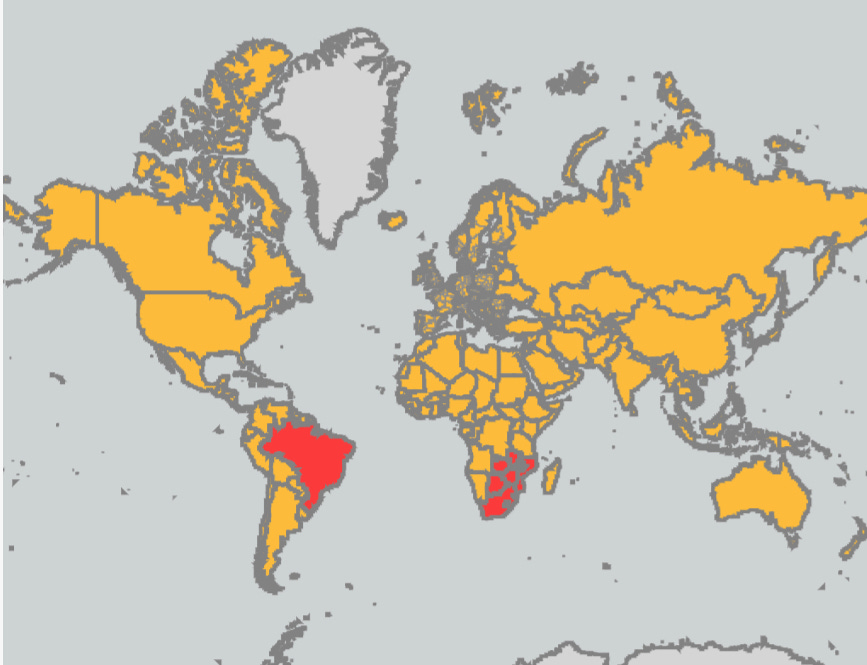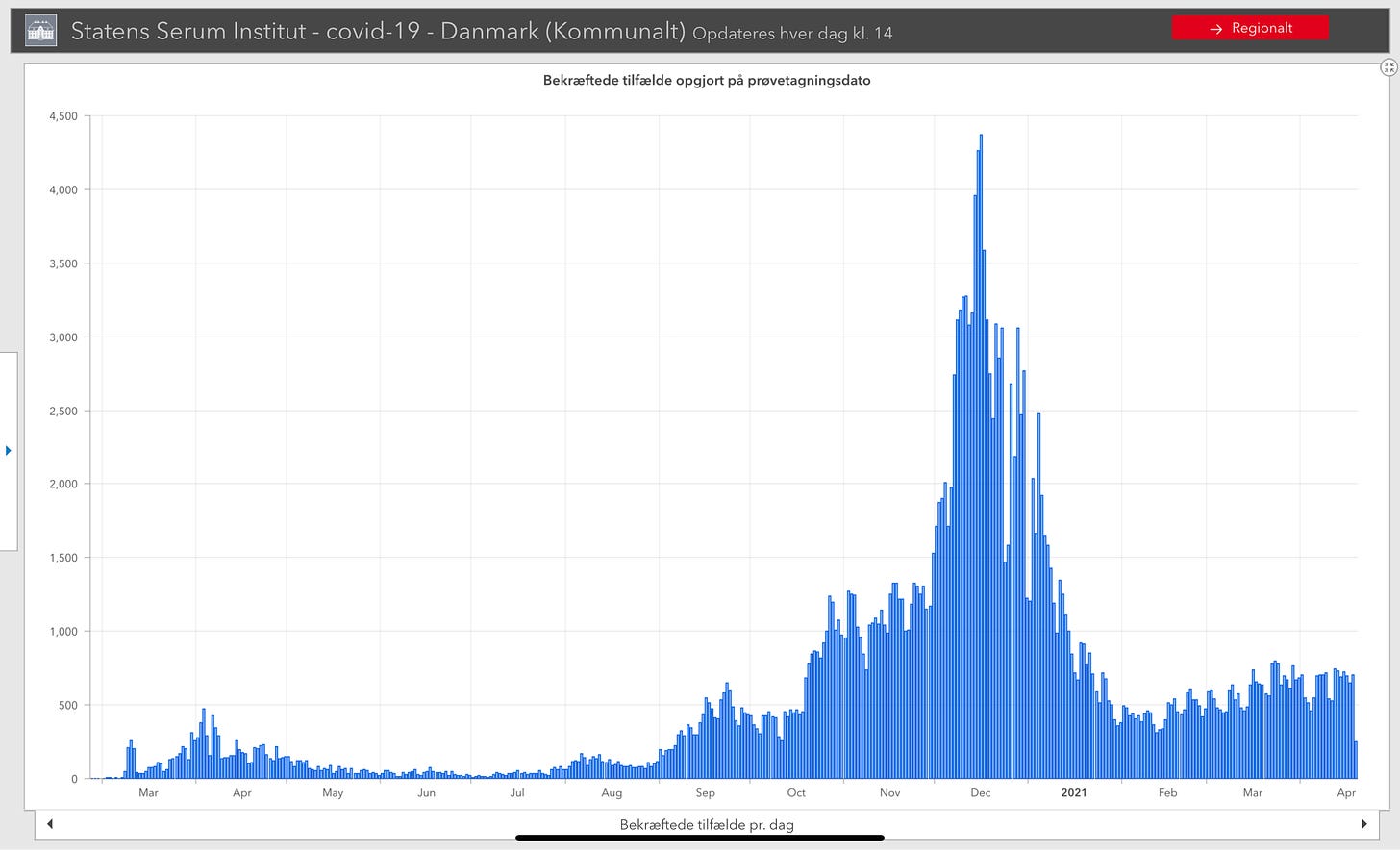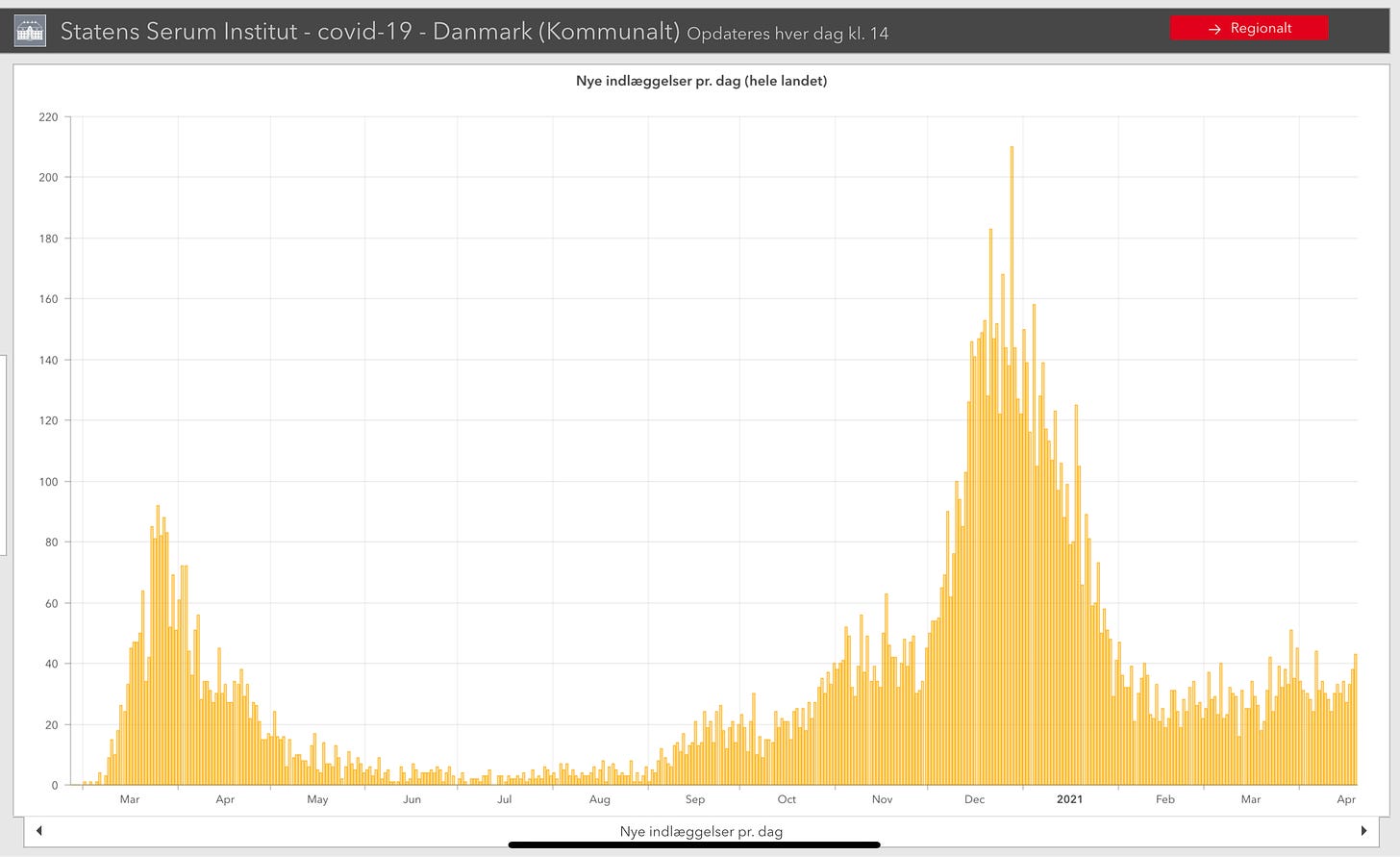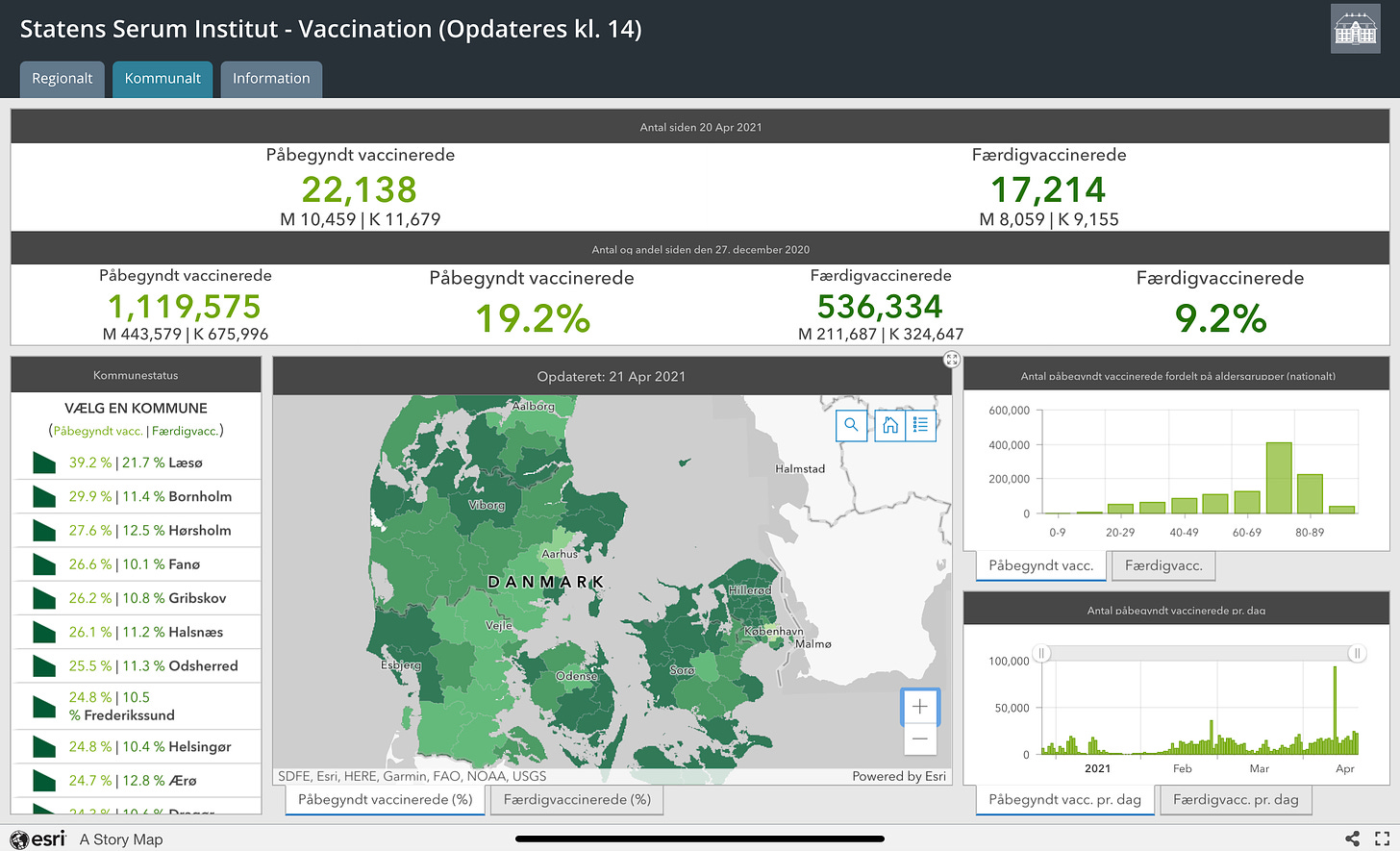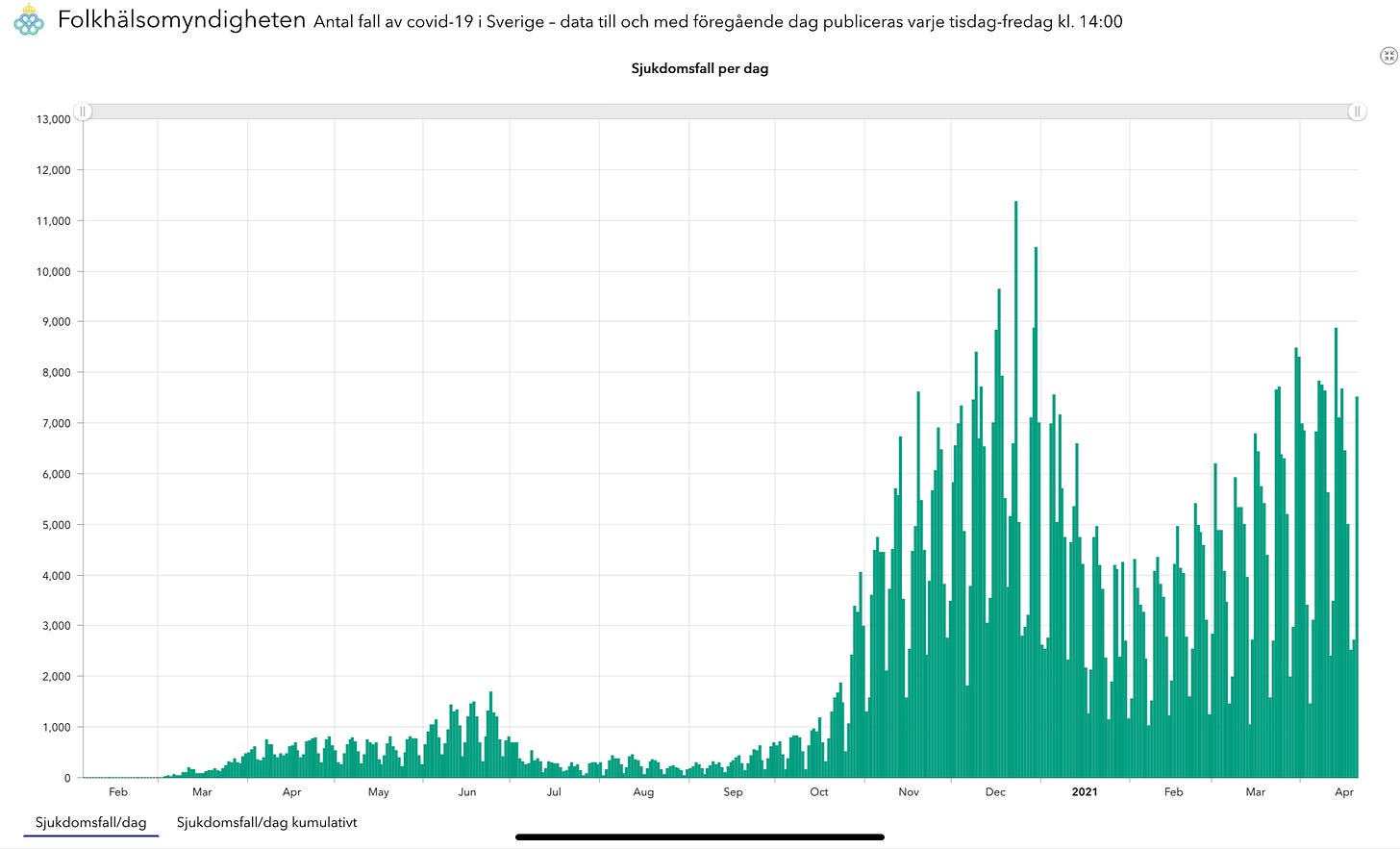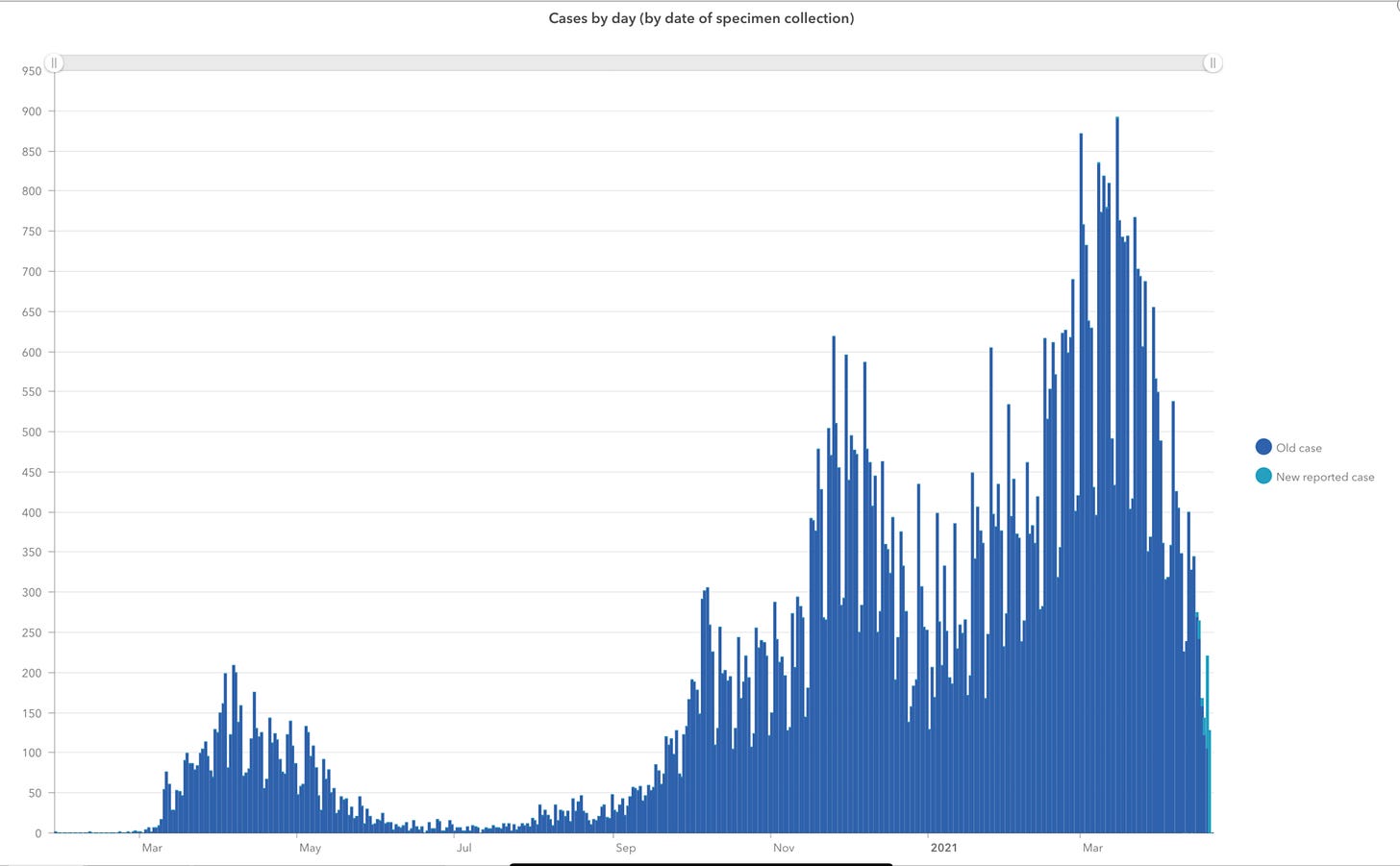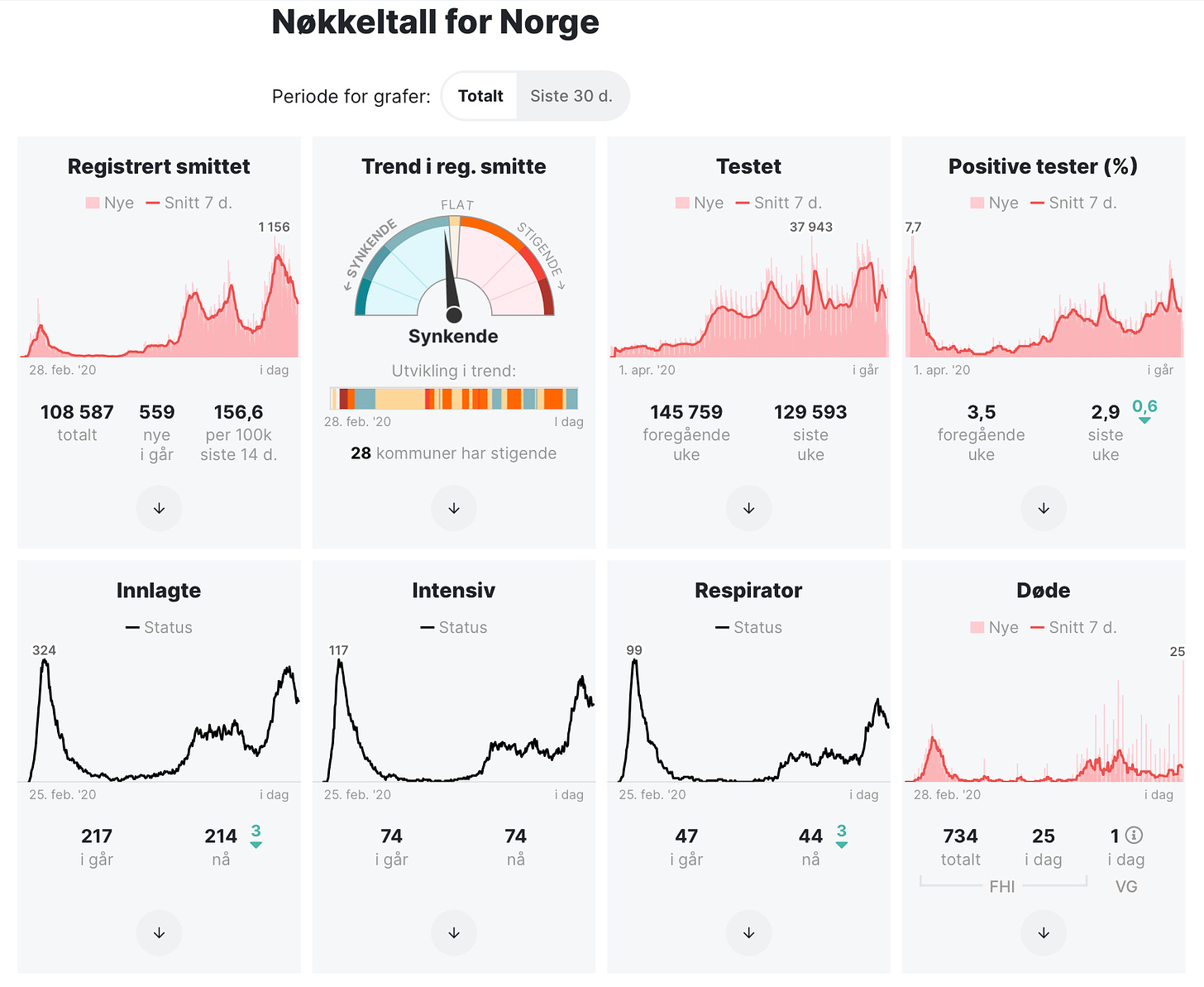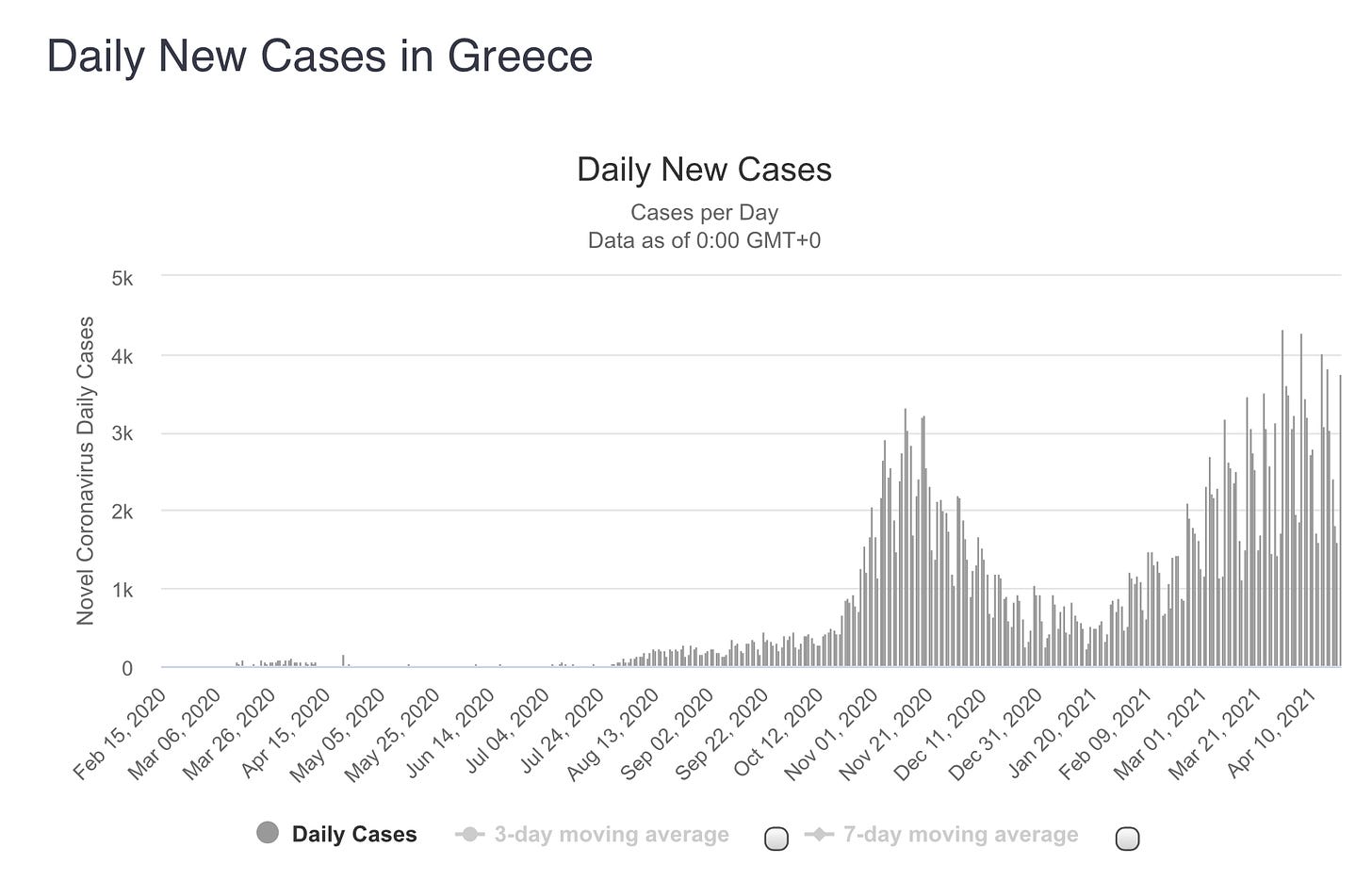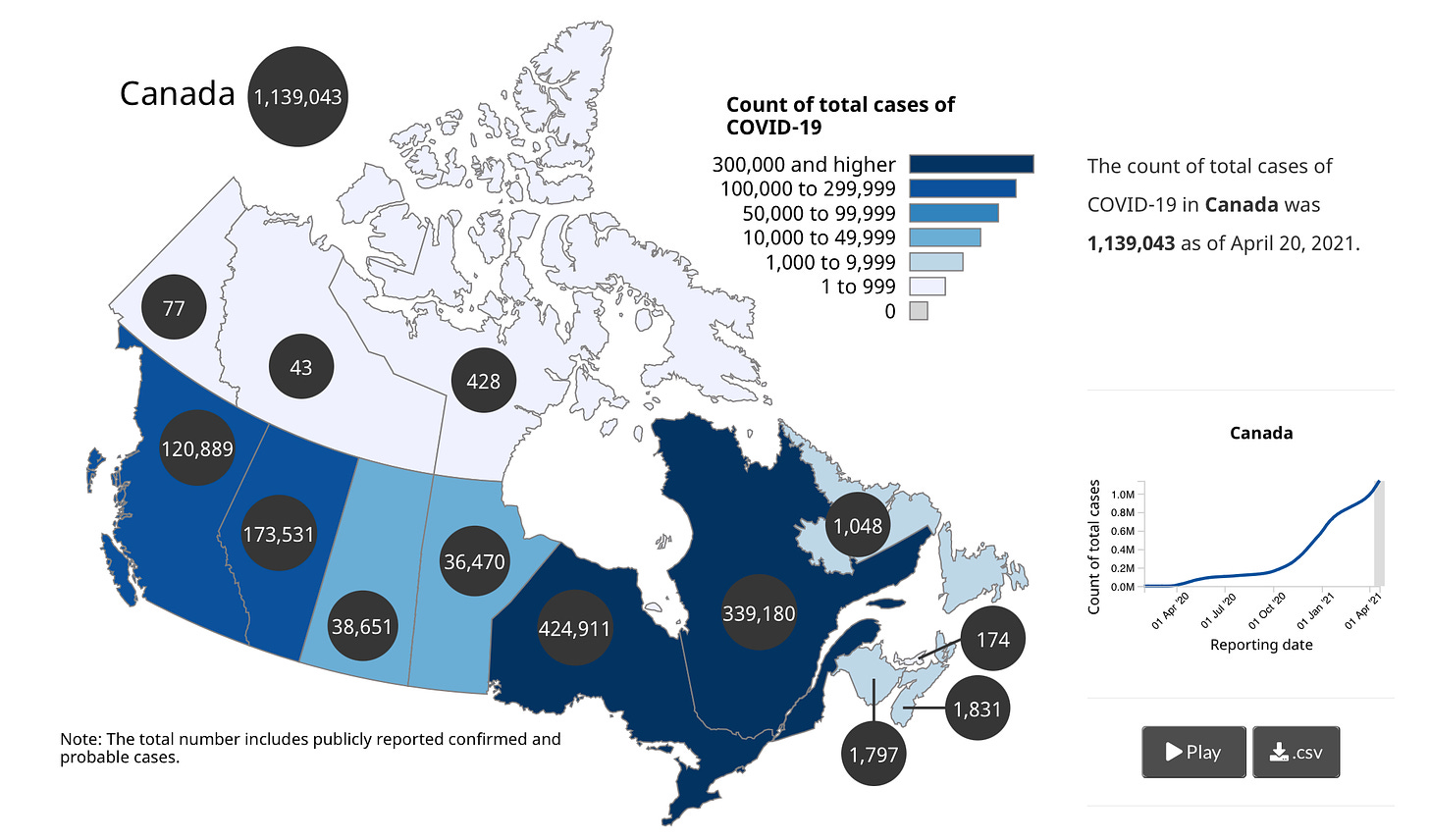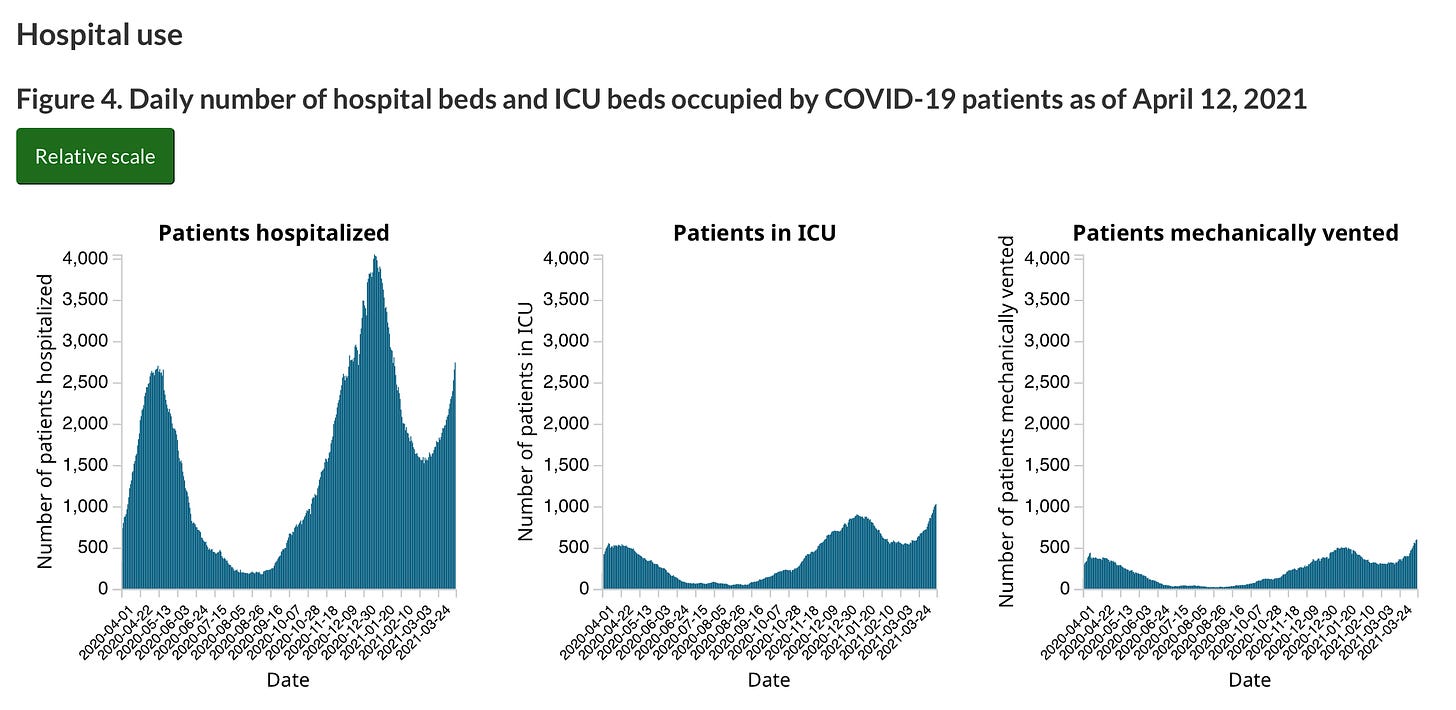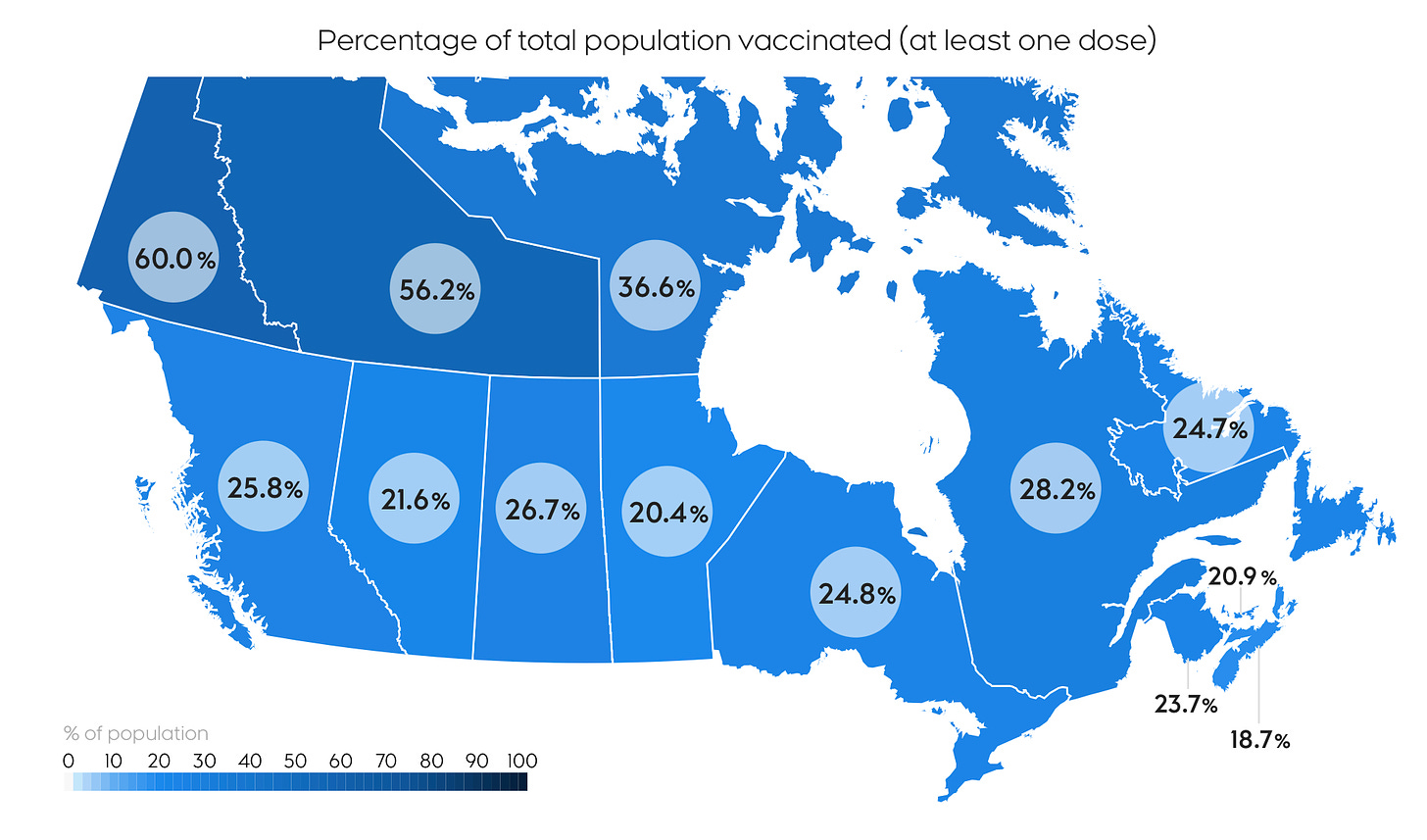The Evening Report - April 21st
From no go red to orange, travel restrictions began to be eased in Denmark today.
🇩🇰
The one-shot Johnson & Johnson vaccine remains on hold in Denmark. The National Health Board is now assessing the results of the European Medicines Agency safety review of the vaccine tabled earlier this week. The review found a possible link between the vaccine and rare cases of post-vaccination blood clots and low platelets.
National Health Board Director General Søren Brostrøm.
“In the coming week, the Danish Health Authority will discuss EMA's assessment with the expert team that was formed when the COVID vaccine from AstraZeneca was paused. Their advice will be invaluable to us as we decide on whether to use the vaccine from Johnson & Johnson in Denmark.”
A decision will be announced next week.
-
Most of the world is now orange in the eyes of Denmark today as the three tiered colour coded COVID travel risk assessment makes a return. An orange designation means all unnecessary travel to the country in question is not recommended.
Here is how the colour coded COVID threat assessment looks for countries in Europe
And here is the global assessment. Note Bangladesh, Botswana, Brazil, Eswatini, Lesotho, Malawi, Mozambique, South Africa, Zambia, Zimbabwe, as well as the La Réunion region, an overseas French territory off south-eastern Africa, are all classified as COVID red zones.
Inexplicably India has not been classified a red zone.
Danish Foreign Affairs offers an app for travelers allowing them to register their contact information and which country they are traveling too. This will enable Danish Foreign Affairs to send you country specific updates on the coronavirus situation and other safety and travel alerts.
The app is called ‘Rejseklar’ you can download it for iPhones HERE or for Android smart phones HERE.
-
Denmark is reporting 803 COVID infections and two more coronavirus deaths in the last day.
Yesterday, 532,906 total corona tests were done, 193,622 PCR and 339,284 rapid, for a (PCR only) positivity percentage of 0.41%.
COVID hospitalizations (191) are down (-3), while the number of infected in an ICU (41) is up (+3). The number on a ventilator (22) edged down (-1).
On the vaccination front, to date 1,119,575 1st dose vaccinations (19.2% of the population) have been administered while 536,334 people (9.2%) are now fully vaccinated.
Yesterday a total of 39,352 vaccinations were done.
In at least one of Denmark’s five health regions they are working smoking cessation in with COVID vaccinations. Region Sjælland says smoking addiction adds another risk factor in surviving coronavirus. It says health officials at vaccination centers in the region are are now asking people who are coming in to get a first vaccine dose about their smoking habits and referring smokers to a program to help them kick the habit.
-
Ølgod Parish in Varde Kommune is the latest to exceed infection rate benchmarks, triggering an automatic shutdown. All schools, SFOs, leisure and cultural facilities are ordered closed. Ølgod has a coronavirus incidence rate of 464, with 24 new infections, and a positivity percentage of 2%.
-
A four week project testing wastewater for COVID on the Danish island of Bornholm is being called a success.
Wastewater samples were collected daily and then sent to a laboratory in Jutland for COVID testing. The results were then compared to coronavirus testing results from island residents and visitors. The Staten Serum Institut says the results proved it was possible to detect even low virus infection activity in the wastewater that roughly correlated with actual testing results.
SSI Senior Researcher Steen Ethelberg:
“A little over 200 samples were taken from the seven different treatment plants and 11% of the analyses detected the coronavirus. In the same period, 37 Bornholmers tested positive. Even though there were only small amounts of virus in the wastewater, and even though there were only a few infections on the island during the period, there was a rough coincidence between when and where there was a virus in the wastewater, and when citizens were testing positive."
While the trial project showed wastewater testing could be an effective COVID early warning system, researchers say it is important to try it in an area with a much higher population. Work is now being done to set that up in other areas of Denmark.
-
Denmark has changed tax laws so that Danish companies can now deduct all costs and expenses related to the COVID testing of employees. The deduction covers everything from the test kits themselves, protective equipment, and costs related to the health professionals administering the tests. Most companies in the country are encouraged to test employees twice a week.
-
For just the third time since 1890, the huge May Day trade union event in Fælledparken has been canceled. The event was also cancelled last year due to the pandemic. The only other time the event has ever been called off was in 1940 when Germany invaded.
-
The pandemic has also claimed another event victim as Aalborg has, for the second year in a row, cancelled its big end of May carnival. Organizers say the coronavirus situation and restrictions in place make it impossible to go ahead this year.
🇸🇪
Sweden has added 7,510 infections and another 38 corona deaths since yesterday’s update.
To date, 1,943,109 1st dose (23.7% of the population) and 693,437 2nd vaccination doses (8.5%) have been administered.
-
Sweden is beginning phase two vaccinations, which include priority vaccinations for some healthcare workers. Heading to the front of the vaccination line will be doctors, nurses, and health staff who work in close contact with people considered to be a high risk for COVID.
-
The Swedish Public Health Agency has found a silver lining to the coronavirus pandemic. It says the pandemic has resulted in a steep decline in virtually every other infectious disease.
State Epidemiologist Anders Tegnell:
“The fact that most Swedes followed advice and recommendations, had fewer close contacts, kept their distance, worked from home, stayed at home even with mild symptoms, avoided travel abroad, and were careful with hand hygiene, contributed to the reduction of infectious diseases last year.”
The rate of food borne infections, like salmonella, were cut in half compared to 2019.
Seasonal influenza and flu rates saw what the agency called “a rapid decline in cases.”
The season for the Norwalk virus in Sweden ended two months early in March of 2020 and vanished entirely this last fall and winter.
Sexually transmitted diseases like Hepatitis B and C also declined, just not as sharply, falling about 25%.
Travel related infectious disease rates have plummeted with tuberculosis, malaria, dengue fever, and giardia infections decreasing by 30–70% compared with 2019.
🇫🇮
Finland has registered 214 infections and two more virus deaths since yesterday’s update as its strict corona lockdown continues to work to drive down infection rates.
COVID hospitalizations (142) have fallen (-21). ICU numbers (35) have also edged down (-1).
On the vaccination effort to date, 1,367,666 1st doses (24.5% of the population) and 127,493 2nd vaccine doses (2.3%) have been administered.
-
The Finnish government has approved a plan to gradually ease lockdown restrictions. Much like Denmark, restrictions will be slowly lifted every two weeks. A date to begin has yet to be announced.
Indoor and outdoor sports could resume in areas with low infection levels, albeit with a cap of 50 people “as soon as possible.”
Through May and June, border restrictions will be gradually eased for cross border travel for commuters, visiting family and relatives, and for travelers within the European Union, in that order.
-
Finnish Prime Minister Sanna Marin says a €230 million support package is coming to help the culture, arts, sports, and event industries recover from the pandemic.
🇳🇴
Norway has added 559 infections and 25 virus deaths, its 2nd highest number of daily deaths to date, since yesterday’s update.
COVID hospitalizations (214) are down (-3), ICU numbers (74) are unchanged, and those on a ventilator (44) dropped (-3).
To date, 20.8% of Norwegians have had a first vaccination dose while 5.60% of the population have had both.
-
Norway is sending 16,000 doses of the AstraZeneca vaccine to Iceland. Norway has dropped AstraZeneca completely but Iceland continues to offer it those over 60. The doses are expected to arrive in Iceland in a few days. Norwegian health authorities abandoned AstraZeneca following reports of rare blood clots in connection with vaccinations.
🇩🇪
Germany has moved another step closer to going back into a lockdown. The German parliament (Bundestag) passed legislation today to allow for an “emergency brake” lockdown as the country struggles with a variant driven third infection wave. Recently the German regions reached a deal with the national government to allow it to administer restrictions if infection numbers exceeded certain benchmarks.
🇫🇷
The French government is expected to lift COVID restrictions beginning in May. Ritzau reports travel restrictions in France could be eased on May 3rd. This would be followed by bars and restaurants reopening in mid-May. Restaurants, pubs, and cafes in France have been closed since October 30th. Currently people in France must also stay within ten kilometers of their homes and abide by a nightly 7pm curfew.
🇬🇷
Even though Greece is reopening for tourism from countries within the E.U. and five countries outside of it, including Israel and the United States, it remains a European COVID hot spot. Yesterday the country registered 3,750 new infections and 87 more corona deaths.
🇨🇦
Yesterday, Canada recorded 7,276 COVID infections and 46 more coronavirus deaths.
Hospitalizations nationally, and especially in Ontario, remain a huge concern.
To date, 9,536,454 1st doses (25.09% of pop) and 944,964 2nd vaccine doses have been administered.
Today Ontario’s Health Minister Christine Elliott tweeted, “Ontario is reporting 4,212 cases of COVID19 and nearly 51,900 tests completed. Locally, there are 1,249 new cases in Toronto, 771 in Peel, 386 in York Region, 276 in Hamilton and 214 in Durham. As of 8:00 p.m. yesterday, 4,131,882 doses of the COVID-19 vaccine have been administered.” There were another 32 deaths.
Quebec reported 1,217 infections and six more corona deaths today.
In Atlantic Canada, Newfoundland and Labrador had one infection. Yesterday New Brunswick recorded its first case of severe blood clotting after someone was vaccinated with AstraZeneca.
There were 211 infections and one death in Manitoba yesterday.
Saskatchewan had 249 infections yesterday while registering a record high of 51 people in a ICU. The province also recorded its first confirmed case of the Brazilian P1 variant yesterday.
Alberta registered 1,345 new infections and five more deaths yesterday. There are 476 people in hospital and 105 in an ICU. The province has a positivity percentage of 10.3%.
B.C. reported 849 infections and one more death. Hospitalizations continue to rise with a record high 456 people in hospital, and 148 in an ICU.





